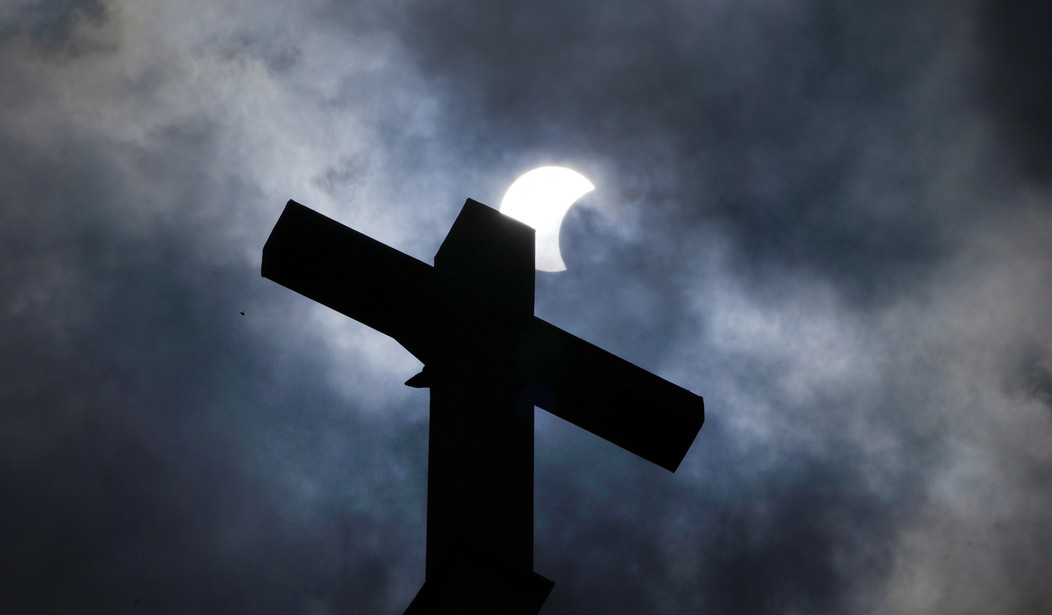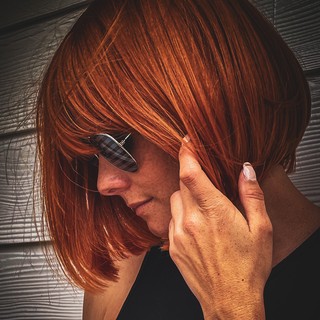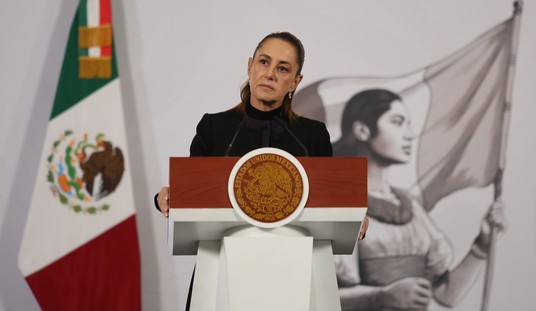There are things we take for granted until, one day, we are made to realize how unique they are. For atheist and historian Tom Holland, a trip to the war-torn Iraqui town of Sinjar gave him a different perspective on one of the most commonly accepted symbols of our culture: the Christian cross.
America is facing an ideological war like we have never faced before. Protestors fill our streets with Islamic phrases and chants. When criticized, they equate Islamic ideology to other normal, civilized societies. But is it the same?
If we take a deeper look at the fundamentals like Holland did, there can be no comparison. Holland was working on a book about the impact of Christianity on history when he was invited to visit Sinjar, a town that had been held captive by the Islamic State for two years. When he arrived with the film team, they encountered destruction beyond belief.
“I'm not a naturally brave person. If I’d known that I was going to end up in this terrible place being shelled by the Islamic State, I would have never gone.”
They saw a home with “Yazidi’ written in Arabic. The home had been firebombed. It is assumed a neighbor exposed the family to ISIS. They saw a barn where women of the village had been taken to be sold into slavery, even as young as eight years old. Those not found attractive enough were shot, and their bones still lay in the dirt. They saw a church where the altar had been systematically crushed. Where a beautiful cross had hung, only destruction was left.
“There was a definite sense that what had particularly aggravated the fighters who came there and who desecrated the church was the cross.”
Among all the other atrocities, the men of the town, Christians and Yazidis, had been crucified by ISIS. What once was just a familiar symbol for Holland seen on street corners, necklaces or greeting cards now had a tangible and dreadful significance.
“It was a terrifying and horrifying experience… but what I found most terrifying and most horrifying was the sense that I was in an environment, in a town, that had been destroyed by people for whom the cross did not have the significance that it had for me and for the society in which I had grown up. That for the Islamic State, the cross served as a symbol of their right to inflict violence on people who resisted them.”
As a historian, Holland had always known that this was what it meant for the Romans. That is why, he argues, Christianity was so confusing to those of that age. In Roman society, power was the most important thing.
“This is what the cross has symbolized for the Romans. It had symbolized for them their right to torture to death anyone who presumed to defy their power.”
In comparison, Christianity spoke of letting the last be first, turning the other cheek, and a God who paid the price for human sin himself and offered free grace. The symbol of the cross had been a symbol of torture and humiliation, but through the story of Jesus, it became a symbol of love, sacrifice, forgiveness, and human dignity.
“The horror of this seemed to open up a great abyss before me. I came back from filming in Sinjar, came back from Iraq, returned to my book and rewrote the opening to focus on the crucifixion. Because that experience had sharpened for me the utter, utter strangeness of what perhaps can seem too familiar to people who have grown up in a Christian society.”
The ideological challenges America is facing today are different than what we have faced in the past and we must be careful not to let the significance pass unnoticed. In every generation, there has been a conservative side and an opposing liberal side. That is human nature, and throughout history, our nation has thrived on the balance. But the balance is thrown off when we don’t have the same core values as the foundation for our country.
Woke culture has made conservatives live in a constant state of pinching themselves to make sure this isn’t some nightmare we need to wake up from. Gender ideology, newly branded racism in DEI, and now, one thing we never thought we’d see — Islamists filling our streets, defacing our statues, and calling for the death of Jews and often for the downfall of our own country!
Where do we go from here? Former President Obama said infamously in 2008:
“Whatever we once were, we are no longer just a Christian nation; we are also a Jewish nation, a Muslim nation, a Buddhist nation, a Hindu nation, and a nation of nonbelievers.”
While that may be true, we should not say those words so lightly. Do we know what that means? What do those religions believe? How will their beliefs affect our laws? If this nation had been built on any of the other religions listed, what would it look like today? Did he know in 2008 that in 2024, it would be “cool” to call for Intifada?
President Obama spoke truthfully but flippantly. It’s a serious thing for a nation to lose its moral compass. Our country is scrambling to find a replacement for Christian moral law as an anchor. In the name of “tolerance,” we have now gotten to the point where protestors can fill the streets and call for violence and the death of innocent people, and we don’t know what to do. Anything the crowd wants can be right, and telling them no can be wrong.
Tom Holland found himself in a place where the cross did not mean for the people there what it meant for us here, and it terrified him. One day, we too might find ourselves in a place we don’t recognize but it may be that the strange place we find ourselves in will be on our land, on our own soil. The decisions we make now are crucial. What we decide to allow can have lasting impact. Tomorrow is not granted, and as we see now, the future culture of our nation is also not granted. Let us not end up like the cliche that says you don’t know what you have til it’s gone.














